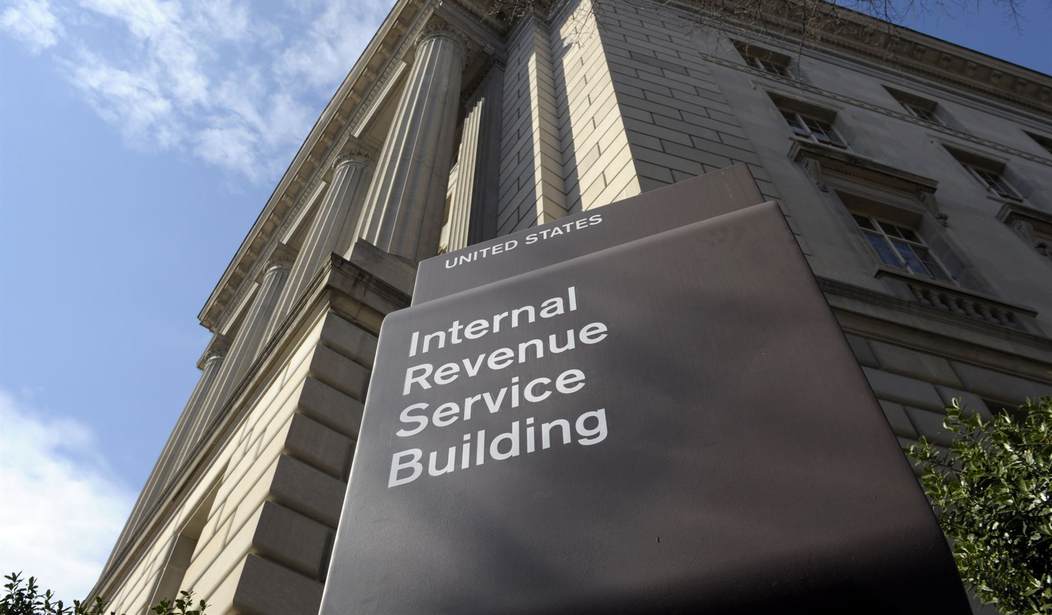The IRS is having trouble telling taxpayers how it will spend its $80 billion gift from Democrats.
On April 6 the IRS finally released a “plan” for the $80 billion in new funding it received as part of the dishonestly named Inflation Reduction Act. The plan was 48 days late and yet it was void of substance. It was long on rhetoric and short on numbers. Even beltway reporters took the IRS to task for the lack of details.
One detail that is clear from the report: the IRS is indeed on pace to hire 87,000 new employees.
For a plan that was supposed to have projections from 2023-2031, the IRS only went as far as projecting staffing levels for 2025. In an attempt to defend this inexcusable lapse, Deputy Treasury Secretary Wally Adeyamo said, “We don’t want to be locked into numbers on a piece of paper.”
The thing is, they’re not. The plan is not legally binding. It is meant to inform taxpayers how tens of billions of their dollars will be spent.
There is no legal consequence of the IRS releasing the actual numbers. The only drawback would be that skeptics of the plan would be proven right that 87,000 employees would be hired at lightning speed, a fact that Biden and the Democrats would prefer be kept quiet.
Much was also made in the report of new technologies the IRS claims will fix their individual master file. But the IRS culture of incompetence and unaccountability will prevent this from becoming reality.
The IRS has a proven track record of failure with technological implementation. The IRS has received multiple tech funding surges over the past 40 years to fix the master file but they failed each time, with nobody held accountable.
The pervasive government-first, taxpayer-last culture that pervades the IRS extends far beyond its technological (in)capabilities. As recently as October of 2022, IRS employees were indicted for stealing taxpayer funds to purchase Gucci bags, luxury automobiles, and even trips to Las Vegas.
Recommended
IRS Criminal Investigation agents cannot be trusted to follow crucial rules regarding storage of evidence. When the Treasury Inspector General for Tax Administration (TIGTA) inspected IRS-CI facilities for their evidentiary practices, it “observed that some sites had evidence placed in hallways, stacked outside cubicles, and in break rooms.”
Also, “seven of the nine offices did not keep grand jury material in a separate, secure area. The grand jury material was intermingled with non-grand jury evidence and other case file information.” This is not just one bad apple. This permeates through the entire agency.
The IRS also has not completed its congressionally mandated complexity report in more than twenty years. This is a report that is meant for the IRS to identify sources of complexity in administering the tax code. Congress enacted this mandate on the IRS so that paying taxes would be easier for hardworking Americans. And yet the IRS has not bothered to complete that report in over two decades.
The hiring pace is also alarming in that the IRS is touting that it is getting back to the staffing levels it had in the 1990s. Those with long memories will recall the reason the IRS undertook vast reforms in 1998: the IRS had become too powerful and too corrupt. The unchecked power necessitated the Internal Revenue Service Restructuring and Reform Act. The IRS would target innocent small businesses with SWAT team-style raids and take punitive actions without any regard for due process. The Inflation Reduction Act’s supersizing of the IRS threatens to bring the abuse back.
Those who work for the IRS and actually want to right these wrongs are out of luck. A recent TIGTA report found that the IRS had eliminated its employee suggestion system, which employees could use to advocate for making the agency better and more efficient, and did not replace it.
While the plan put out by the IRS earlier this month was woefully lacking in specifics, there is more than enough to paint a picture of a supersized, hungrier, less accountable IRS. All the while, the IRS track record does nothing to inspire confidence that any services or technology will be meaningfully improved.
























Join the conversation as a VIP Member